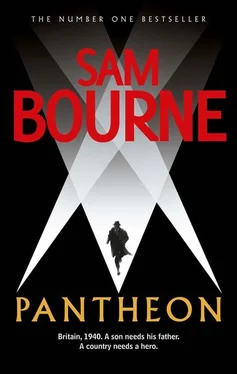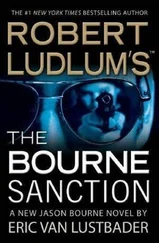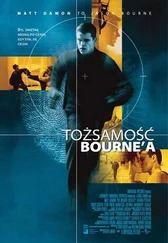Sam Bourne - Pantheon
Здесь есть возможность читать онлайн «Sam Bourne - Pantheon» — ознакомительный отрывок электронной книги совершенно бесплатно, а после прочтения отрывка купить полную версию. В некоторых случаях можно слушать аудио, скачать через торрент в формате fb2 и присутствует краткое содержание. Жанр: Триллер, на английском языке. Описание произведения, (предисловие) а так же отзывы посетителей доступны на портале библиотеки ЛибКат.
- Название:Pantheon
- Автор:
- Жанр:
- Год:неизвестен
- ISBN:нет данных
- Рейтинг книги:3 / 5. Голосов: 1
-
Избранное:Добавить в избранное
- Отзывы:
-
Ваша оценка:
- 60
- 1
- 2
- 3
- 4
- 5
Pantheon: краткое содержание, описание и аннотация
Предлагаем к чтению аннотацию, описание, краткое содержание или предисловие (зависит от того, что написал сам автор книги «Pantheon»). Если вы не нашли необходимую информацию о книге — напишите в комментариях, мы постараемся отыскать её.
Pantheon — читать онлайн ознакомительный отрывок
Ниже представлен текст книги, разбитый по страницам. Система сохранения места последней прочитанной страницы, позволяет с удобством читать онлайн бесплатно книгу «Pantheon», без необходимости каждый раз заново искать на чём Вы остановились. Поставьте закладку, и сможете в любой момент перейти на страницу, на которой закончили чтение.
Интервал:
Закладка:
Who cared if it was confusing? It was magnificent. Such lustre gathered in one room: newspaper writers and publishers of pamphlets trading ideas with aristocrats and eminent industrialists. This, Taylor reflected, must be how a London salon in the eighteenth century would have been: men of stature seated around a fine polished table, the room heavy with wealth and pedigree.
But not, Taylor Hastings noticed, confidence. Anna’s husband, Reginald Rawls Murray, member of parliament for some far-off part of Scotland and animating genius behind the Right Club, was energetic in his efforts to lift the spirits, but the faces gathered around him remained stubbornly sombre.
‘Churchill has us on the run,’ was a remark offered more than once. The arrival of the new prime minister and the departure of Chamberlain, humiliated over the failure in Norway, represented a grievous, perhaps terminal blow to their cause: the campaign for what they called ‘an honourable, negotiated peace’. Now the nation’s leading warmonger was in Downing Street, seizing on Hitler’s march through the Low Countries and recent conquest of France as proof positive of what he had said all along: that Germany was intent on global domination and could not be appeased, only defeated.
But Churchill’s threat was much more direct than that. He had wasted no time in rounding up and jailing suspected Nazi sympathizers under the dreaded Defence Regulation 18B, a move which had badly depleted the ranks of the Right Club. Around the table tonight were those whose status and rank made them harder fish to catch or who had been careful to present themselves as ‘anti-war’ rather than ‘pro-Hitler’. But tonight, in private and among friends, there had been no such need to conceal their true views.
Murray had set the tone early enough when, in a bid to lighten the mood, he had asked the assembled to join him in a chorus of the country’s much-loved, if unofficial, national anthem. He began humming the tune of ‘Land of Hope and Glory’, but then, when it came time to sing, he bade the table hush while he could present his new, alternative lyric: ‘ Land of dope and Jewry Land that once was free All the Jew boys praise thee Whilst they plunder thee.’
There had been a roar of approval and a banging on the table, spreading a wide smile across Murray’s face. Encouraged, he went on: ‘ Land of Jewish finance Fooled by Jewish lies In press and books and movies While our birthright dies.’
That, though, was one of the few moments of good cheer. The consensus that night held that the Jews had won yet again, dragging the country into war — and that to suggest seeking peace while Churchill was hailing the country’s ‘finest hour’ and speaking of a ‘Battle of Britain’ was doomed, if not suicidal. The phoney war was over; the real war was on in earnest. To stand against it now was to be branded a traitor.
All of which contributed to a gloomy mood in the Russian Tea Room. Murray was the only man present who remained both jolly and overt in the expression of his views, confident both that the room contained only those who could be trusted and that the privilege of his seat in parliament would protect him from the loathsome Regulation 18B.
The rest threw out various general observations of disgust and despair. ‘For years, all that we value has been in peril,’ said one man with a title, who might have been an earl or a viscount, a word which Taylor remembered came with a silent ‘s’, but whose suit looked surprisingly shabby. He rattled off the list: the Empire, Christian beliefs, England as the land of freeborn Englishmen and of freeborn Englishmen alone. ‘All of that has long been under threat — from the Bolsheviks, from foreigners, from the masters of international finance.’ The last phrase delivered with a knowing look. ‘But this war will destroy it, once and for all.’
Why, then, had none of this gloominess infected him, Taylor wondered now, as the bedside clock nudged towards three in the morning. Partly it was the childish thrill of a young man allowed to sit at the grown-ups’ table: he had been decades younger than everyone else there. Partly it was the secret knowledge that, after the food and wine, he would be savouring the host’s wife, thanks to Murray’s midweek habit of staying overnight at his club.
But mainly it was a vague sense, one not fully formed until he articulated it now, that he was somehow immune from the pessimism around the table. He had great sympathy for these Brits; but he was an American and in America the game was all still to play for. In the US, unlike Britain, it was not yet — to use the two words that had come up again and again over dinner — too late.
Taylor shifted to a cooler patch of the bed, taking care to move stealthily so that Anna would not stir, wondering for a passing moment if Murray himself had ever done to his wife what Taylor had just done — wondering indeed if Murray had ever even slept in this bed. There certainly seemed to be a separate, gentleman’s bedroom on the other side of the landing. Maybe it was simply a condition of being an American that made him more upbeat than his fellow diners this evening. Wasn’t that what set most Americans, certainly those his age, apart from their British cousins: that sense that their best days were ahead, not behind them?
No, it was more personal than that. In the end, Taylor had been in a good mood when all around him were down in the mouth because he had the growing feeling — almost a premonition — that he was about to play a part in events of great import.
It had been budding even as he had slicked the brilliantine through his hair at Cadogan Square, this sense of imminence, but it had been confirmed by Murray several times through the evening. At intervals, the old man had winked in Taylor’s direction, sometimes offering opaque asides: ‘Not the same for you though, eh, Hastings?’ or ‘You’re in a rather different boat, wouldn’t you say?’ By the time the waiters cleared away the main course — beef in a gravy more luxurious than the thin brown liquid served up at these so-called British Restaurants around town — Murray had left no doubt in the mind of anyone in the room that he had seen something in young Taylor Hastings. This dinner was only their second meeting, the first being that introductory tea at the Savoy with Anna, and yet Murray was treating him like a trusted confidant. Once the room was clear of serving staff, the MP had tapped his glass with the side of a dessert spoon.
‘I hope you’ve all had a splendid dinner,’ Murray began, to a murmur of approval around the table. ‘As you know, we’ve already welcomed our guest, Taylor Hastings from the colonies.’ A polite smile from the American. ‘But I know you will agree with me in saying that we strongly hope young Mr Hastings will be more than a guest in our country and more than a guest in our cause.’ A couple of ‘hear, hears’, including, Taylor was glad to note, from the Duke of Wellington.
‘So, for that reason, it is my great honour to present Mr Hastings with membership of our little society. In accepting it, he joins us in the first rank of those fighting for England. For the real England, that is. And against the real enemy. Not our fellow Aryan, the great nation of Germany, but the race which has been at war with Christendom from the very beginning. So let me present Mr Hastings with the crest that marks him as a valued member of the Right Club.’
There was applause as Taylor rose from his chair and walked the three or four paces to where Murray stood waiting to greet him. The MP gave him a strong handshake and then passed him a metal badge.
Hastings looked at the dulled silver brooch. It showed an eagle killing a snake, beside two capital letters: ‘PJ’.
Читать дальшеИнтервал:
Закладка:
Похожие книги на «Pantheon»
Представляем Вашему вниманию похожие книги на «Pantheon» списком для выбора. Мы отобрали схожую по названию и смыслу литературу в надежде предоставить читателям больше вариантов отыскать новые, интересные, ещё непрочитанные произведения.
Обсуждение, отзывы о книге «Pantheon» и просто собственные мнения читателей. Оставьте ваши комментарии, напишите, что Вы думаете о произведении, его смысле или главных героях. Укажите что конкретно понравилось, а что нет, и почему Вы так считаете.












